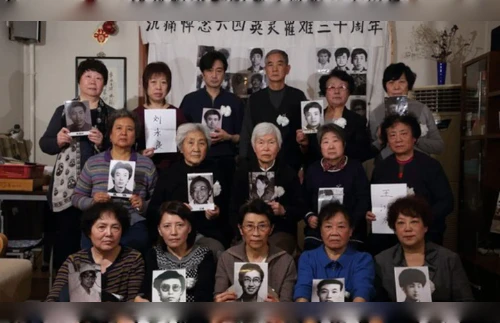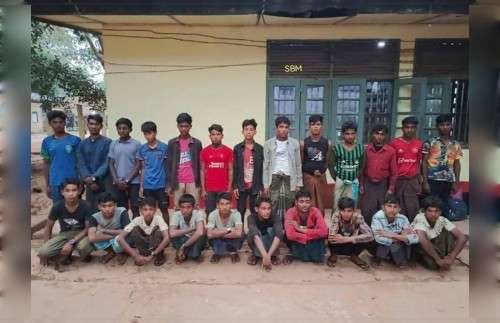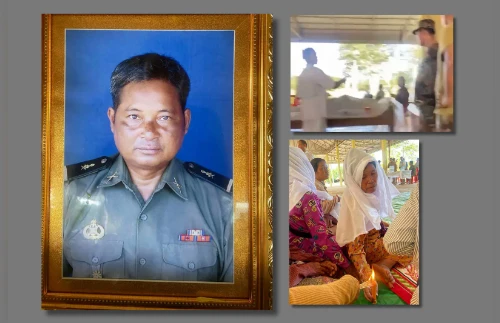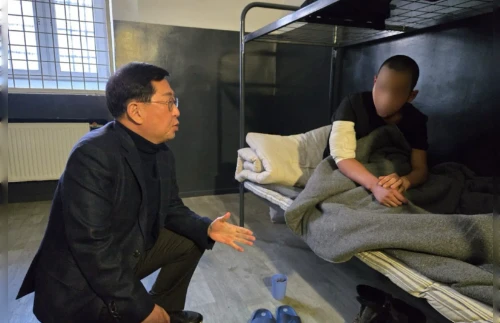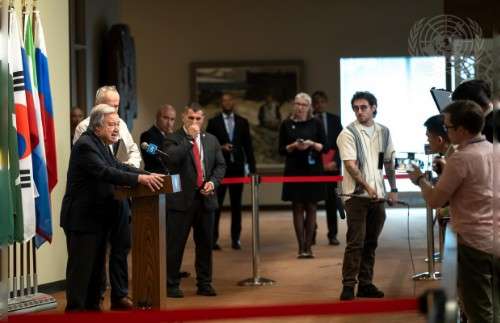China’s team demanded removal of Tibetan activists from stadium, but spectators chanted for them to be allowed back.
By Tenzin Pema for RFA Tibetan
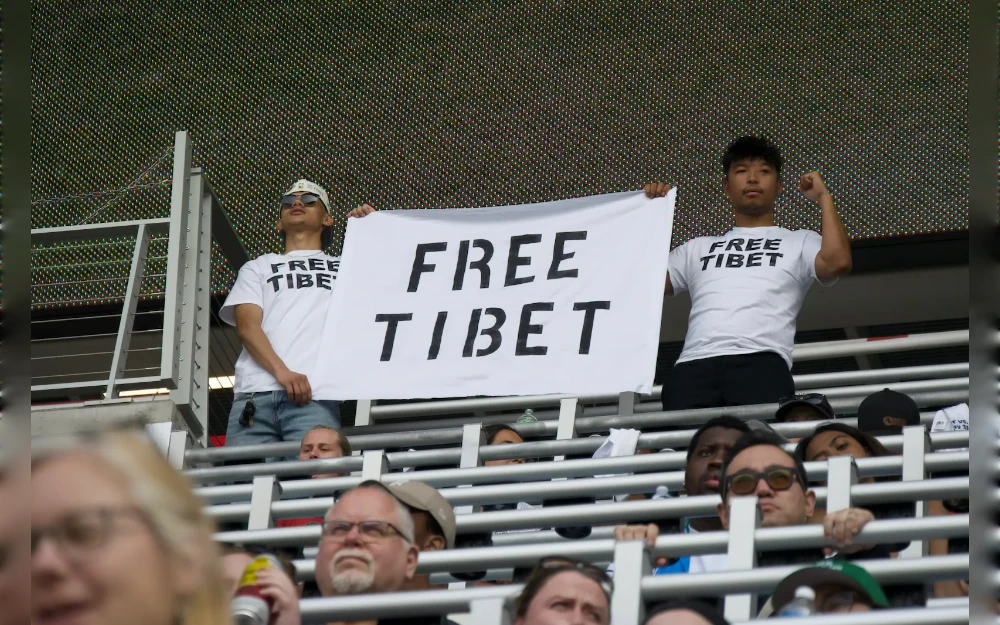
Tibetan activists protested for a “Free Tibet” during a women’s soccer friendly between the United States and China at the weekend — and won the support of other spectators who booed when they were briefly evicted from their seats by security.
The Chinese team members and support staff confronted the eight activists who were seated close to them during Saturday’s friendly international match at the Allianz stadium in St. Paul, Minnesota, that the U.S. won 3-0.
The activists, dressed in white T-shirts, had been shouting slogans and holding up white banners that read “Free Tibet” during the second half of the game.
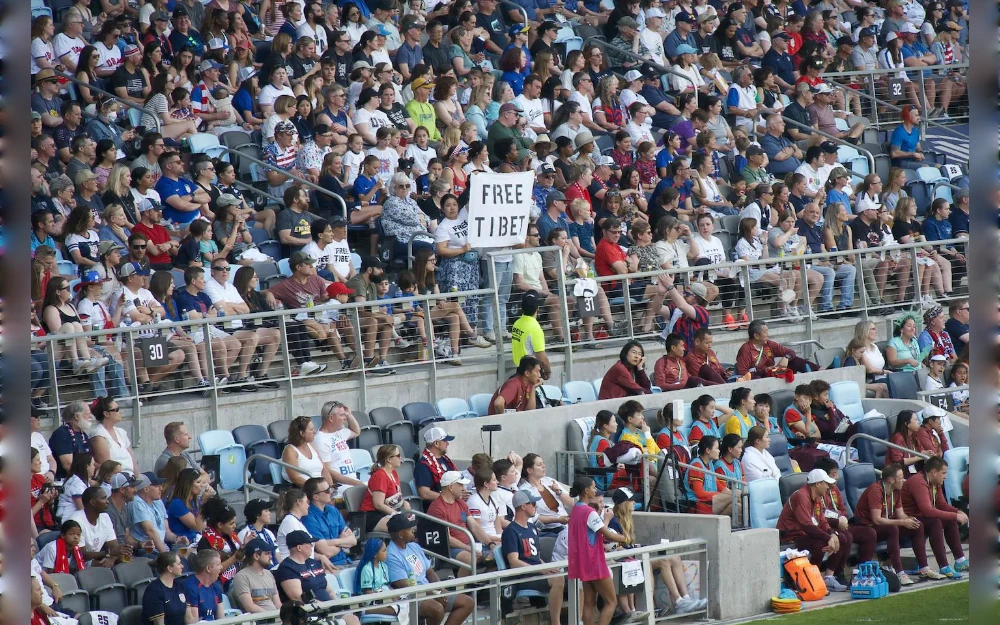
Members of the Chinese team sought their removal from the stands, and the activists were asked to leave the stadium by security guards. That prompted boos from other spectators who shouted, “Let them stay!” and chanted “Free speech!”
Soon after, stadium officials allowed the activists to return to their seats but confiscated their white banners. The activists watched the rest of the game holding up the Tibetan national flag that is banned by China inside Tibet. They also still wore their “Free Tibet” T-shirts.
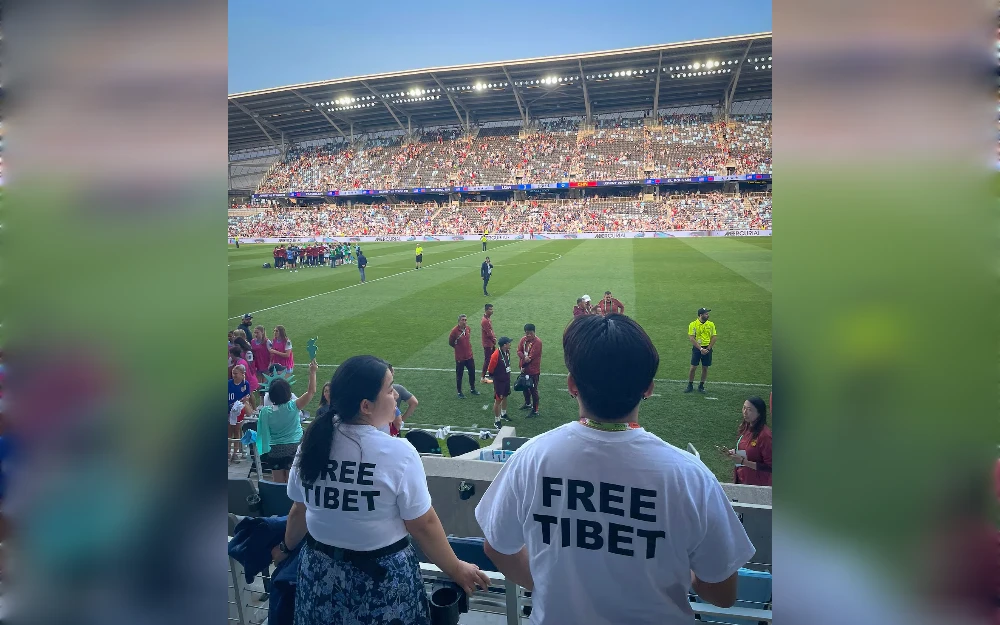
“The biggest takeaway (from this campaign) is that if Tibetans stand up, raise our voices, and take action for our own cause, then the people of the world automatically rise up in support,” one of the protesters, Tenzin Palsang, told Radio Free Asia on Tuesday.
“China doesn’t just play soccer. They also play games with human rights,” said Palsang, who is president of the Minnesota chapter of the Regional Tibetan Youth Congress.
She cited harsh conditions inside Tibet, where she said children are suffering “colonial boarding school policies,” referring to the Chinese government-run schools where Tibetan children, aged 6-17, have reportedly been held in “prison-like” conditions and forced to study a Mandarin-heavy curriculum that promotes party loyalty or a state-approved “patriotic education.”

According to Freedom House’s annual 2025 Freedom in the World report, Tibet was given a score of 0, based on an analysis of political and civil freedoms, making it one of the least-free places in the world. China annexed Tibet in 1950 and has since governed the territory with an oppressively heavy-hand while seeking to erase Tibetan culture and identity.
Beijing denies it represses Tibet or seeks to erase its cultural traditions, instead pointing to economic development in the region as evidence of its positive impacts on the population of about 6 million Tibetans.
Edited by Mat Pennington.
“Copyright © 1998-2023, RFA.
Used with the permission of Radio Free Asia,
2025 M St. NW, Suite 300, Washington, D.C. 20036.
https://www.rfa.org.”





